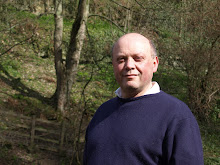I had expected that, as I approach the end of my tenure, my diary commitments would begin winding down. This, alas, was not to be and this week has been as busy as ever.
But nevertheless, my time as Chairman will soon be at an end, and I have been thrilled with how Clare Gerada has been taking forward so much crucial College work. Her work on Commissioning in particular has been invaluable, and it fills me with confidence to know that the College will be in her capable hands.
Last week I had the great honour and pleasure of giving the David Bruce Lecture to the Army Medical Services at the Royal Military Academy in Sandhurst. I gave an academic lecture celebrating general practice and focused on the critical role GPs can play in the care of the most vulnerable people in our society, particularly the homeless, travellers, sex workers and refugees.
As someone who has a great interest in history, to give the David Bruce lecture was a particular treat. Sir David Bruce started off his career like me, working in a warehouse in Manchester before going to medical school! He was a GP in Reigate and then joined the Army. He investigated and treated Malta-fever (later named Brucellosis after him). He identified the cause of sleeping sickness and saved countless lives by introducing typhoid and tetanus inoculation for the troops in the First World War. What a man!
Giving the lecture also gave me an opportunity to once again thank the army medical services for their hard work, commitment and bravery in looking after our troops both in Iraq and Afghanistan. I am always so humbled by the skill of our military colleagues who work in difficult, often frightening circumstances, and I was grateful for the opportunity to speak to them.
This week I was called to give evidence on commissioning to the Health Select Committee. Of all the times I have been called as a witness to the Health Select Committee, this was probably the most difficult and challenging I have experienced; the commissioning agenda is in many ways polarized, and it was apparent to me that there was a degree of political point-scoring taking place. If you would like to read the transcript, or watch the video of the evidence session, then they are available through the parliament website; I think you will find it interesting viewing, not least because as it highlights the value of open questions – there were very few of them! The video is a good teaching aid for trainees which will work as a trigger for discussion – also giving evidence was the excellent Richard Vautrey from the BMA.
You can read the transcript and view the video here: http://www.parliamentlive.tv/Main/Player.aspx?meetingId=6842
Dr Knut Schroeder, a GP and Fellow of the College has produced a new publication Diagnosing Your Health Symptoms for Dummies which I want to bring your attention to. This new guide has been endorsed by the College as part of our ongoing agenda of helping to empower patients and their families. I have been quite vocal on the issue of public health, and really believe that giving patients the information and support needed to make informed decisions about their own health and the healthcare they receive is a vital to improving the public’s general health. This guide is an accessible way to help patients to begin to take control of their own health, and I’d urge all of you to take a look.
On Wednesday night I hosted a working dinner for College Officers and the Society of Academic Primary Care. Throughout my time as Chair I have worked to create stronger links between the College and our academic colleagues. I am pleased that College has re-engaged with the academic departments – I felt that we had drifted apart and wanted to take the chance as Chairman to work more closely with the GPs and the many other professionals who research in primary care – this isn’t just about GPs.
We have seen an extraordinary few years of research which will make massive difference to patients’ lives, one recent example being Willie Hamilton’s excellent award winning study into identifying early symptoms of ovarian cancer which I believe will lead to the earlier diagnosis by GPs of what has been called the ‘silent killer’. Willie is I guess a modern day David Bruce.
Research, academia and evidence-based practice are all important parts of the work that all medical professionals do, we just sometimes fail to recognise that we are an academic discipline – all jobbing GPs across the country aim to provide the highest quality evidence based care for our patients – we need to value and celebrate the work of our colleagues who produce that evidence. Our RCGP Clinical Innovation and Research Centre at the College (CIRC) is becoming enormously influential, and our Conference this year had more clinical and academic sessions than ever before.
I want to thank CIRC for their continuing support; I and the College continue to advise the Government and our four health departments on clinical matters, and a lot of the information we use comes directly from CIRC and the academic departments. I’m always hugely impressed with their abilities; I’ve often had to request up-to-date information which I’ve received at the drop of a hat, and much of our success is owed to their hard work.
Yesterday I attended our MRCGP Examiners’ Annual Conference in Stratford-upon-Avon, which is an opportunity to meet with another group of GPs who are committed to raising standards. Again, I have been hugely impressed with how the exam has been developed over the last year, and with the continuing academic rigour with which it has been approached.
Subscribe to:
Post Comments (Atom)

No comments:
Post a Comment